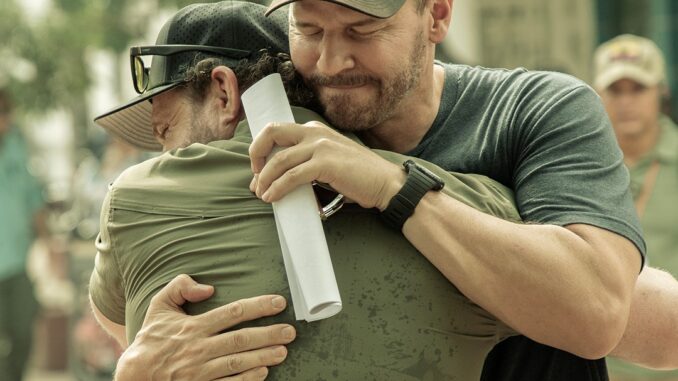
As SEAL Team heads into its thrilling finals, fans are left on the edge of their seats, wondering how the dynamics within the elite unit will evolve, particularly the relationship between their leader, Jason Hayes, portrayed by David Boreanaz, and his team members. Throughout the series, Jason has navigated numerous challenges, both on and off the battlefield, which have tested his leadership and emotional resilience. The final season promises to delve deeper into these relationships, highlighting how the pressures of impending missions, personal growth, and the looming threat of loss will influence Jason’s interactions with his team.
The Burden of Leadership
From the beginning, Jason Hayes has embodied the archetype of a dedicated and tough leader, often carrying the weight of his team’s success on his shoulders. His leadership style has been characterized by a fierce loyalty to his team, a willingness to make tough decisions, and a determination to protect his men at all costs. However, the emotional toll of these responsibilities has begun to show, particularly in the final season, where the stakes are higher than ever.
As the series progresses, Jason’s leadership will evolve from one of singular authority to a more collaborative approach. The intensity of their missions, coupled with personal struggles—such as Jason’s battle with PTSD and the emotional fallout from his past—will force him to rely more on his team members for support and insight. This shift is crucial as it fosters a more open environment, allowing team members to express their concerns and ideas, ultimately strengthening their bond.
Navigating Personal Struggles
One of the most compelling aspects of Jason’s character arc is his vulnerability. In the final season, we see him grappling with the consequences of his past decisions and the impact they have on his relationships. His struggle with PTSD, especially after harrowing missions, makes him more empathetic towards his team members who may be facing their own battles.
Jason’s relationship with Clay Spenser, Ray Perry, and Sonny Quinn will be particularly interesting to watch. Each member of the team has their own backstory and emotional baggage, and as they confront challenges together, their bonds will deepen. For instance, Clay’s journey from a young, ambitious SEAL to a seasoned operator mirrors Jason’s own evolution, leading to a mentor-mentee relationship that is tested and ultimately strengthened through shared experiences.
Strengthening the Team Dynamic
As the series reaches its climax, the dynamics of Jason’s relationship with his team will shift from mere comradeship to a deeper familial bond. The imminent dangers they face in the finals will force them to rely on each other in unprecedented ways, encouraging open communication and trust. Jason will begin to see his team not just as subordinates but as partners in every sense of the word.
The trials they encounter will require Jason to lean on the unique strengths of each member, emphasizing the importance of teamwork. For instance, Ray’s tactical expertise and Clay’s innovation will play critical roles in their survival. Jason’s acknowledgment of each member’s contributions will foster an environment of mutual respect and collaboration, reinforcing their connection.
The Impact of Loss
In military narratives, the threat of loss looms large, and SEAL Team is no exception. The final season will inevitably introduce scenarios where the team faces significant challenges that may lead to loss or sacrifice. Jason’s relationships will be tested under these pressures, forcing him to confront the reality of leading men into dangerous situations where not everyone may return.
This reality will compel Jason to engage in candid discussions with his team about fear, sacrifice, and mortality. As they grapple with these themes, the team will experience profound growth, moving from a group of soldiers to a tightly-knit family. Jason’s role as a leader will shift from one of authority to one of support, helping his team navigate their grief and fear together.
Conclusion
As SEAL Team heads into its finals, the evolution of Jason Hayes’ relationships with his team members promises to be a central theme. The pressures of leadership, personal struggles, and the imminent threat of loss will transform their dynamics, fostering deeper connections and a greater sense of unity. By embracing vulnerability and promoting open communication, Jason will not only solidify his role as a leader but also strengthen the bonds that make his team formidable. Ultimately, the series will showcase the resilience of the human spirit and the power of camaraderie in the face of adversity, making for an emotional and gripping conclusion to an unforgettable saga.